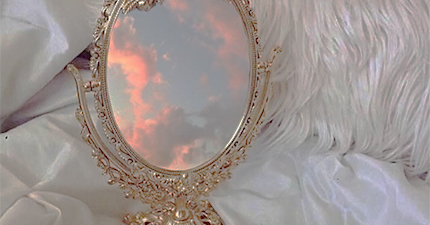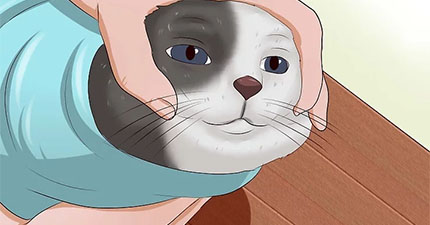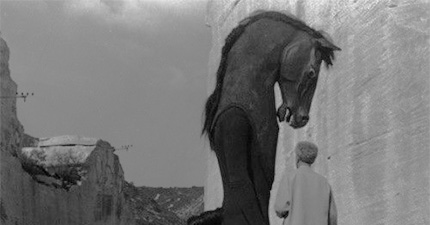If you have ever used the I Ching for divination, you have most likely noticed that there are a lot of references to someone called a 君子 or junzi. If you are using the James Legge translation which is still the most popular one then you will see this junzi referred to as The Superior Man.
The junzi is the main character of the I Ching. Almost every single poem ends with some instructions for the junzi. He is told to not be too brash, to wait until he hears back from a lover before making another move, and to distribute his litigations out fairly.
Who is the junzi?
One way of translating junzi is fairly literal. 君 is gentleman and 子 is son. So, junzi is the child of a gentleman. Hence, another gentleman as aristocracy is inherited. This translation brings to mind a scholarly guy who is philosophical and martial, a bureaucrat with ethics.
In some ways, this makes sense. Junzi is often contrasted with 小人 (xiaoren) in the I Ching. 小 is small or petty and 人 is human. Xiaoren literally translates to petty person. “There’s some people I know who I would call petty.” You might think that this is funny but there is a layer of misogyny present. Xiaoren refers to anyone who handles money which includes merchants and women. In traditional, aristocratic Chinese households women handle money because money is seen as petty.
Or, maybe the junzi is an idealist. The petty people or xiaoren are capitalists.
But is the junzi in the I Ching really some guy? When you read the I Ching, you don’t get the sense that it’s purely social commentary. There’s just too much sensuality and humor. It’s too mystical of a text.
I’ve seen people interpret the junzi as the ego and instructions to him as instructions for our egos too. Xiaoren then becomes the subconscious. Junzi is what we are aware of and xiaoren what we are not aware of. I can see why this is a meaningful interpretation but I think that I can give a bit more context on this interpretation.
In Chinese ink painting, there is a genre of painting called the four junzi or 四君子. In this genre of art, there are four subjects. The four subjects are not different types of gentlemen. In fact, four junzi painting doesn’t depict any people at all. Its only subjects are: orchids, bamboo, chrysanthemum, and plum blossoms.
Each of these four subjects represent a season. Orchids represent the spring because they bloom in the early spring. Bamboo grows the most in the summer. Chrysanthemums bloom in the fall. Finally, the plum blossoms here are not pink ones in the spring. They are the bloody red ones, sometimes called mei flowers, that bloom in the snow during winter.
These are the four junzi. They are the four seasons.
If there is a gender dynamic between the junzu and the xiaoren, there is also a gender dynamic between the cosmos and nature. The sky is thought of as father and nature as mother. The sky lays on top of nature and gives birth to life. This is missionary position.
In Chinese cosmology, the sky is thought of as enacting itself on nature because the seasons shape the land. This is why a genre of painting the four seasons is also called the painting of the four gentlemen. The weather is usually gendered as male in Chinese cosmology because the weather is part of the sky.
Who is the main character of the I Ching? It’s not some guy. It’s the actual season.
When the I Ching tells the junzi to be fair, they’re not just giving advice to any gentlemen who happen to be reading the poems. The text is asking for moderate weather.
Take hexagram 6 for instance. The advice to the junzi is that he plans ahead. Hexagram 6 just happens to correspond to late summer/early fall. This is a time of planning ahead. You have to plan the harvest so that you have enough during the cold months ahead.
Take hexagram 36 as another example. The junzi is told to keep his intelligence hidden from the people. This isn’t some machiavellian scheme. Hexagram 36 happens to correlate with the end of winter and early spring. This is about how the sun is hidden by rain clouds during this season. It’s also an assurance that the sun will come out again. Everywhere in hexagram 36 is the promise that the light will endure.
It’s easy to read translations, see the word gentleman or “superior man” and assume that the text is talking about an actual guy who is supposed to rule us. I do think that the I Ching is talking about influence but I’m not sure that junzi refers to an actual person. The weather is what influences us and rules us all.
Let’s go back to the idea that the junzi is the ego. Because so many hexagrams end with instructions for the junzi, I can see why people assume junzi to be a part of the personality that is in our awareness. If we are aware of a personality trait or emotional narrative then we will try to shape that trait or narrative.
But the instructions given to the junzi are not about interrupting narration and seizing our destinies. The instructions are about living in accordance with the weather. Every set of instructions carries the feeling of inevitability.
I’m not sure what I’m trying to say here exactly. The I Ching contains instructions but the instructions may not be for any human. They might be and they might inform you about seasonal weather cycles. Reading over instructions of any kind, we usually feel a sense of control but also obedience. Maybe that has something to do with the idea of the ego. I’m not sure. I know that I must obey the weather.
1 of 158
>>>


